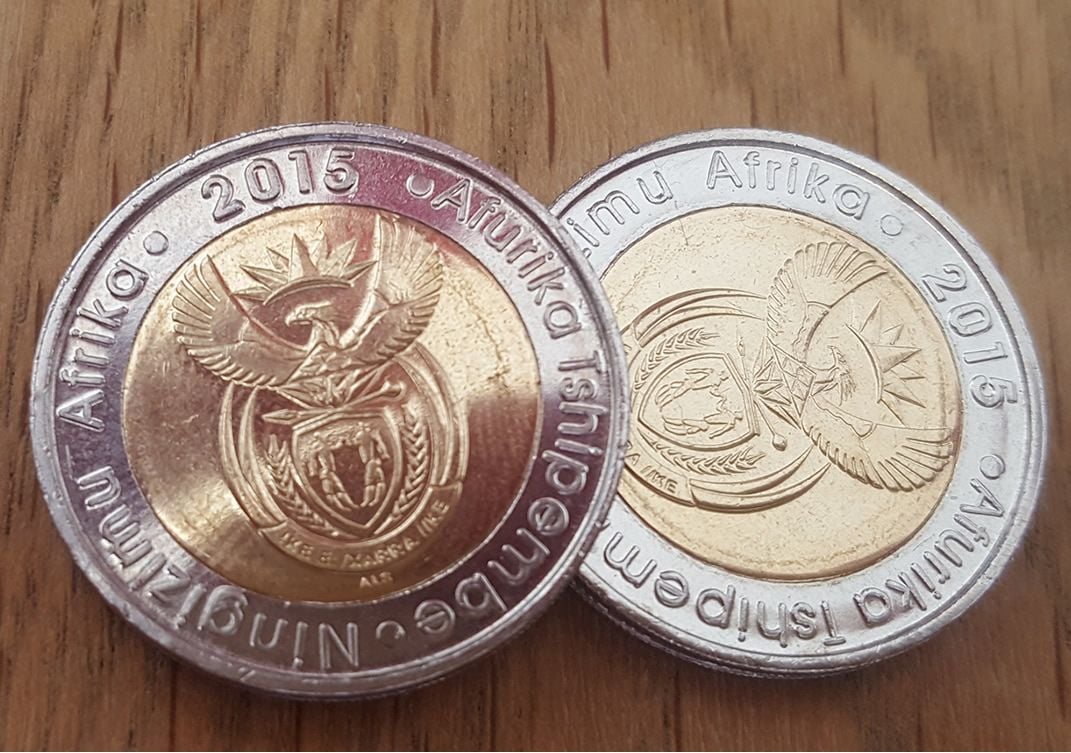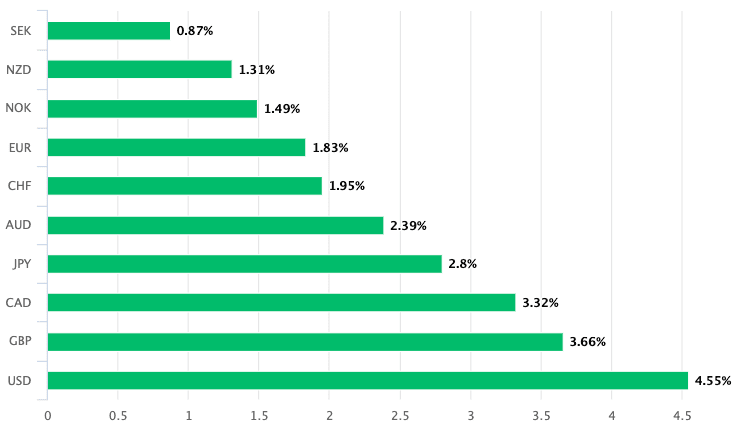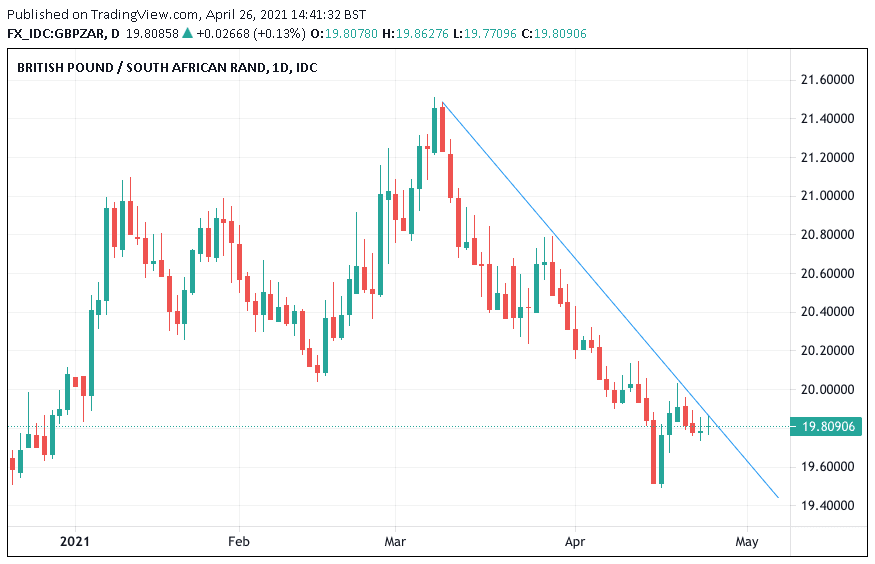Pound-Rand Downtrend Forecast to Extend to 19.50
- Written by: Gary Howes

Image © Pound Sterling Live
- GBP/ZAR spot rate at publication: 19.83
- Bank transfer rates (indicative guide): 19.13-19.27
- Transfer specialist rates (indicative): 18.11-19.69
- Get a specialist rate quote, here
- Set up an exchange rate alert, here
The Pound-to-Rand exchange rate (GBP/ZAR) remains subject to a short-term downtrend with little indication the bears are yet willing to relinquish their grip.
GBP/ZAR has been declining in value since March 09 when it rolled over from five-month highs at 21.50 to subsequently go below the 20.00 level, it quotes at 19.81 the time of publication.
The sell-off endures strong momentum and there is little on the daily chart to suggest selling pressures will ease until the confluence of support levels in the 19.50 area is reached:
Above: GBP/ZAR has been in a downtrend since late March.
Short-term therefore the Rand is favoured over Sterling.
"The global economic recovery will continue to shield the South African rand from domestic woes and its relatively high yield will attract increasing investor demand," says Peter Stoneham, a Reuters market analyst in a recent note.
Stoneham says commodity markets continue to carve out rallies despite reflecting growth optimism for some months now, which in turn supports the Rand.
South Africa is a major exporter of bulk commodities which have appreciated in price since mid-2021 as investors anticipated a sizeable stimulus-fuelled economic recovery in the wake of the Covid-19 pandemic.
"Copper and Iron are the latest markets to shine a light into the pandemic gloom," says Stoneham. "Increasing agricultural prices are also boosting South African export numbers."
Secure a retail exchange rate that is between 3-5% stronger than offered by leading banks, learn more.
The Rand has at times struggled when the global investor spotlight turns to South Africa's domestic fundamentals, which included strict lockdowns aimed at curbing the spread of Covid-19 which knocked economic growth.
Longer-term concerns over governance, corruption and the cash-thirsty public sector have also plagued ZAR valuations.
But Stoneham says coming weeks and months could see these domestic concerns take a backseat to the more constructive global environment.
"Indeed, the boost from recovering global trade, down 5.3% in 2020, could keep the rand on the boil through the remainder of 2021. The World Trade Organisation expects global trade to rebound 8% this year," he says.
The Rand has outperformed the majority of the world's major currencies over the course of the past month, with a 3.66% advance being registered against the Pound, a 4.55% gain being recorded against the Dollar and a 1.83% gain coming against the Euro.

Above: ZAR performance over the course of the past month.
"As with all aspects of economic growth, the international trade recovery will be uneven with hot and cooler spots but with South Africa coming off a low base the outlook bodes well for the ZAR," says Stoneham.
The Rand has also benefited from the woes suffered by a select number of other emerging market countries, particularly Turkey.
The Turkish Lira has endured sizeable volatility and has lost value after the country's President Recep Erdogan fired Central Bank of the Republic of Turkey Governor Governor Naci Ağbal in March.
Ağbal was just the latest in a string of central bank governors who have been fired by the country's president for failing to tow the government line on monetary policy.
For International investors, the fresh uncertainty left them searching for alternative Emerging Market destinations that could offer high returns.
In this instance, South Africa has proven its attractiveness as such an Emerging Market destination and the Rand has benefited as a result of capital inflows into both domestic equities and bonds.
"Its relatively high yield will attract increasing investor demand," says Stoneham.





